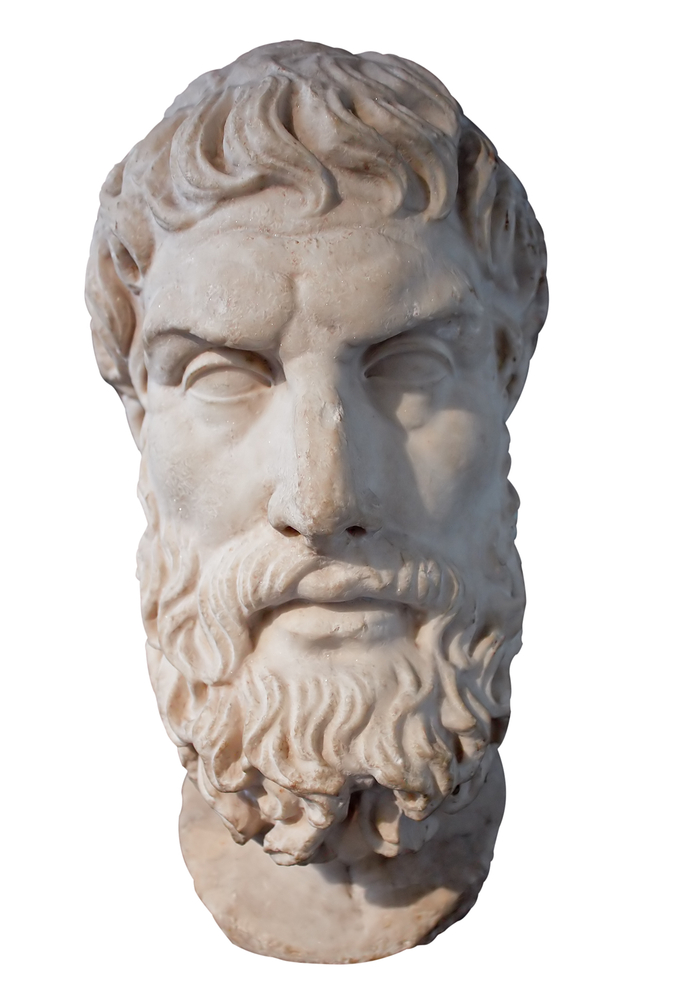Epicurus' "On the Goal" is a philosophical work that outlines his views on the purpose of human life and the means to achieve happiness and fulfillment. In this lecture, we will explore the major themes and ideas presented in "On the Goal" and their implications for human life.
 Epicurus was an ancient Greek philosopher who lived from 341 BCE to 270 BCE. He is known for his philosophical school of thought called Epicureanism, which emphasized the importance of living a happy and fulfilled life through the pursuit of pleasure and the avoidance of pain.
Epicurus was an ancient Greek philosopher who lived from 341 BCE to 270 BCE. He is known for his philosophical school of thought called Epicureanism, which emphasized the importance of living a happy and fulfilled life through the pursuit of pleasure and the avoidance of pain.
Epicurus believed that the ultimate goal in life was to achieve ataraxia, or a state of tranquility and freedom from fear and anxiety. He taught that this could be achieved by living a simple life, cultivating friendships, and avoiding excesses of any kind.
Epicurus also believed that the gods, if they existed, were not interested in human affairs and therefore should not be feared or worshipped. Instead, he argued that the universe was made up of atoms and that everything in the world could be explained by natural causes.
Although Epicureanism has been largely misunderstood throughout history as a philosophy of indulgence, it was in fact a highly ethical and moral philosophy that sought to help people live happy and fulfilling lives.
Epicurus wrote extensively throughout his life, but unfortunately, only a few fragments of his works have survived to the present day. Most of what we know about his philosophy comes from the writings of his followers and critics.
Some of his most famous works include:
-
Letter to Menoeceus: A letter Epicurus wrote to his student Menoeceus, which outlines his philosophy of living a happy life.
-
Principal Doctrines: A collection of 40 brief sayings that summarize Epicurus' teachings on ethics and metaphysics.
-
On Nature: A treatise on the nature of the universe and the origins of life, in which Epicurus proposed his theory of atomism.
-
Vatican Sayings: A collection of Epicurean maxims that were discovered in the Vatican library in the 16th century.
-
On the Goal: A work in which Epicurus discusses the ultimate goal of human life and how it can be achieved.
Although many of Epicurus' works have been lost, his philosophy had a profound influence on the development of Western thought and continues to be studied and debated by philosophers today.
Epicurus' "Vatican Sayings" is a collection of short, pithy statements that reflect his philosophy of life. These sayings cover a wide range of topics, including happiness, friendship, virtue, and the nature of the universe. In this lecture, we will explore the major themes and ideas presented in the "Vatican Sayings" and their implications for human life.
Epicurus' "On Nature" is a philosophical work in which he presents his views on the nature of the universe, as well as the principles that govern the workings of the natural world. In this work, Epicurus argues that the universe is infinite and eternal, and that it is composed of an infinite number of atoms that are constantly in motion. He also discusses the principles of causality, determinism, and free will, and their implications for human life and morality.
This collection of 40 brief sayings provides a concise and powerful summary of his philosophy, and it remains one of the most important works of ancient Greek philosophy to this day.
This letter is one of the most famous and important works in Epicurean philosophy, and it lays out his teachings on how to live a happy and fulfilling life.
In the letter, Epicurus begins by stating that the ultimate goal of human life is to achieve happiness, or what he calls "the good." He then goes on to argue that the pursuit of pleasure is the key to achieving this goal. However, he is quick to clarify that he is not advocating a life of hedonistic excess. Rather, he argues that true pleasure comes from living a life of simplicity and moderation.
